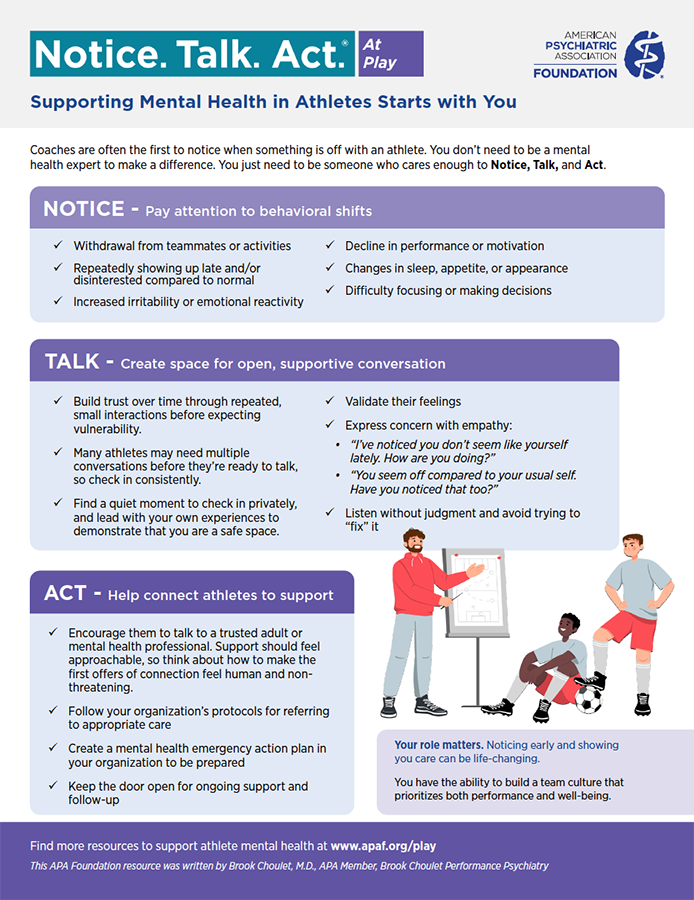
Coaches are often the first to notice when something is of with an athlete. You don’t need to be a mental health expert to make a difference. You just need to be someone who cares enough to Notice, Talk, and Act.
Notice
Pay attention to behavioral shifts:
- Withdrawal from teammates or activities
- Repeatedly showing up late and/or disinterested compared to normal
- Increased irritability or emotional reactivity
- Decline in performance or motivation
- Changes in sleep, appetite, or appearance
- Difficulty focusing or making decisions
Talk
Create space for open, supportive conversation:
- Build trust over time through repeated, small interactions before expecting vulnerability.
- Many athletes may need multiple conversations before they're ready to talk, so check in consistently.
- Find a quiet moment to check in privately, and lead with your own experiences to demonstrate that you are a safe space.
- Validate their feelings
- Express concern with empathy:
- "I've noticed you don’t seem like yourself lately. How are you doing?"
- "You seem of compared to your usual self. Have you noticed that too?"
- Listen without judgment and avoid trying to "fix" it
Act
Help connect athletes to support:
- Encourage them to talk to a trusted adult or mental health professional. Support should feel approachable, so think about how to make the first offers of connection feel human and nonthreatening.
- Follow your organization's protocols for referring to appropriate care
- Create a mental health emergency action plan in your organization to be prepared
- Keep the door open for ongoing support and follow-up
Your role matters. Noticing early and showing you care can be life-changing.
You have the ability to build a team culture that prioritizes both performance and well-being.
Find more resources to support athlete mental health at apaf.org/play.
This APA Foundation resource was written by Brook Choulet, M.D., APA Member, Brook Choulet Performance Psychiatry
